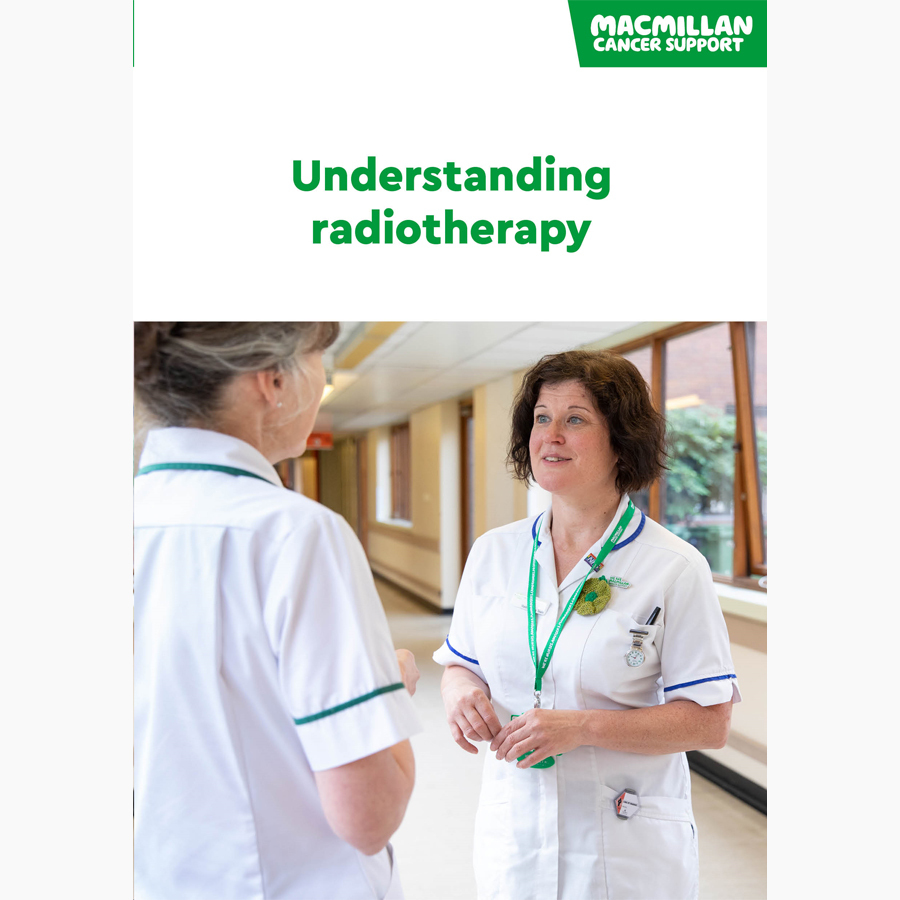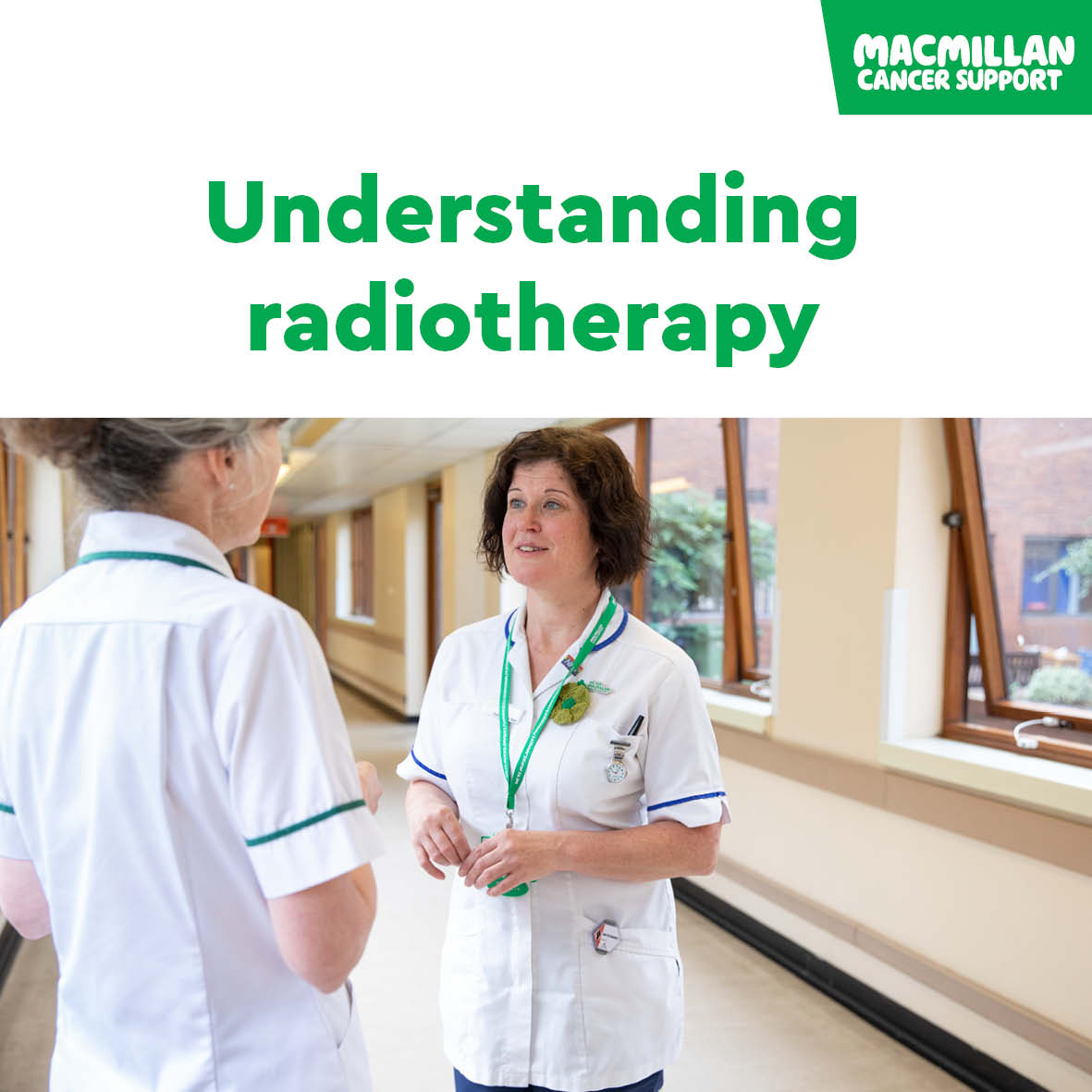Diabetes and radiotherapy
How radiotherapy can affect your diabetes
Treatment is usually given every day from Monday to Friday, with a rest at the weekend. There are different types of radiotherapy.
During and straight after radiotherapy, your blood sugar level may rise. This happens because the body releases extra sugar to help you cope with effects of the treatment.
Depending on your diabetes treatment, your blood sugar may drop after radiotherapy.
Tiredness (fatigue) is a common side effect of radiotherapy. It can last for weeks or months after treatment. If you are very tired, you may not be as active as you normally are. This can affect your blood sugar level. If you can, try to do 30 minutes of gentle to moderate exercise a day.
Your therapeutic radiographers can give you more advice about managing side effects of radiotherapy and exercising while having treatment.
Depending on the part of your body having radiotherapy, it can cause:
- sickness
- diarrhoea
- problems with eating and drinking
If any of these happen, it can be more difficult to manage your blood sugar level. You may also become dehydrated. If you are feeling unwell, you should follow the sick day rules.
Tell your doctor, diabetes team or therapeutic radiographer straight away if you are feeling unwell, have diarrhoea or sickness, or cannot eat or drink normally. Diabetes UK has information about managing your diabetes when you are feeling unwell.
Related pages
Booklets and resources
Managing your blood sugar levels when having radiotherapy
During radiotherapy, it is important to check your blood sugar level more often and tell your doctors what your blood sugar level is. You may need to adjust or change your medicines or insulin. Your diabetes team can give you advice on how to manage your blood sugars.
If you inject insulin, try not to have your injections in the area of skin where you are having radiotherapy.
About our information
This information has been written, revised and edited by Macmillan Cancer Support’s Cancer Information Development team. It has been reviewed by expert medical and health professionals and people living with cancer.
-
References
Below is a sample of the sources used in our diabetes and cancer treatment information. If you would like more information about the sources we use, please contact us at informationproductionteam@macmillan.org.uk
Joint British Diabetes Societies for inpatient care (JBDS-IP). The management of glycaemic control in people with cancer. 2023.
Joharatnam-Hogan, N; Chambers, P; Dhatariya, K; and Board, R. The Joint BritishDiabetes Society for Inpatient Care (JBDS), UK Chemotherapy Board (UKCB). A guideline for the outpatient management of glycaemic control in people with cancer. Diabetes Medicine. 2022; 39.1-11. Available from: https://doi.org/10.1111/dme.14636 [accessed Oct 2022].
Shahid, R.; Shahid, A.; Duc, L; and Sunil, Y. Diabetes and Cancer, Risks, Challenges, Management and Outcomes. MDPI. 2021;13:1-21. Available from: https://www.ncbi.nlm.nih.gov/pmc/articles/PMC8616213 [accessed Oct 2022].
Date reviewed

Our cancer information meets the PIF TICK quality mark.
This means it is easy to use, up-to-date and based on the latest evidence. Learn more about how we produce our information.





